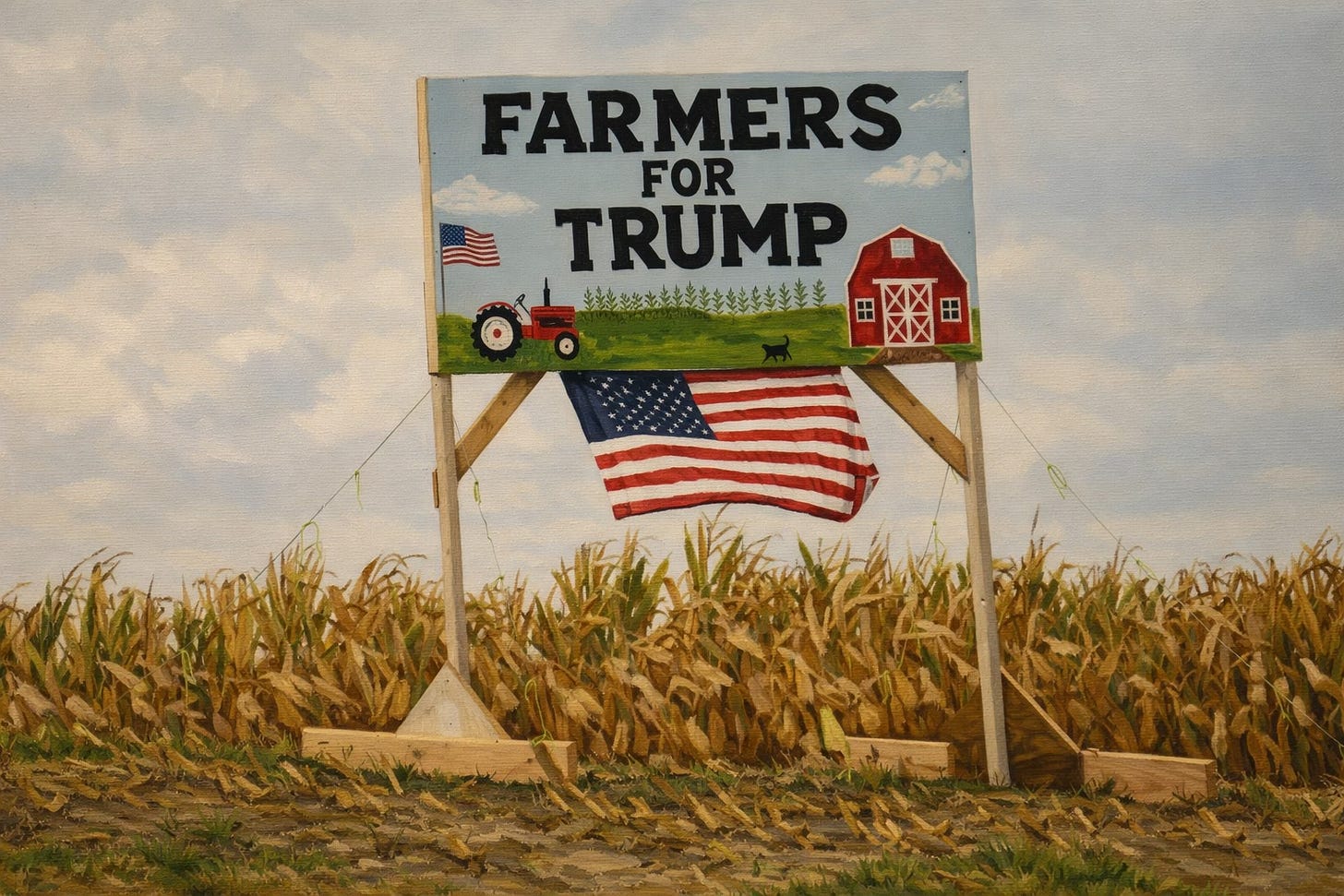They Call It Aid, You Already Paid
The political trick of taxing Americans to fund farm checks.
Oval Office, September 25, 2025: the president vows to take tariff money and cut checks to farmers until the trade war turns in their favor. Then he ups the ante: Ultimately, the farmers are going to be making a fortune.
It’s a clean line for TV. It’s also a shell game.
Tax Americans at the border, call it foreign cash, and recycle a slice back to the people you just kneecapped.
The White House imposed a universal 10 percent tariff on imports. China’s headline rate jumped to 145 percent. The EU, Canada, and Mexico took sectoral hits that begged for retaliation, and got it.
China moved to 125 percent on U.S. goods. The EU targeted 28 billion dollars in U.S. products. Canada and Mexico went straight for U.S. ag staples.
Export markets vaporized.
China once bought more than half of U.S. soy exports. This marketing year it hasn’t booked a single new-crop order. Brazil stepped in and now leads global production.
Those relationships took decades to build. One tariff cycle torched them.
Costs climbed at the same time. Tariffs hit what farmers need to farm. Steel and aluminum for machinery and bins. Components that feed into fertilizer, which can eat a third of a row-crop budget.
Prices for major row crops slipped below break-even. The National Corn Growers Association calls it a four-alarm fire. Forty-six percent of members say agriculture is on the brink of a full crisis.
Two fronts, one policy. Crush revenue and inflate costs.
The administration sells tariff revenue as foreign tribute. In reality it is a domestic tax that lands in the Treasury’s general fund.
There is no magic China pays piggy bank. The burden falls on U.S. importers and, ultimately, consumers.
Meanwhile, China is locking in Brazil and Argentina with infrastructure and contracts. Markets do not boomerang because Washington flips a switch. Reliability lost today becomes price discounts tomorrow and no-bid lists later.
So here we are. A bailout loop financed by a regressive tax, marketed as foreign cash. It patches income while the disease spreads.
Farmers do not need subsidies. They need customers. Until policy stops wrecking the price side with retaliation and the cost side with import taxes, government checks will not keep the countryside solvent.



With the way that's unfolding, it sounds as if soybeans may never be a lucrative crop in the US again...